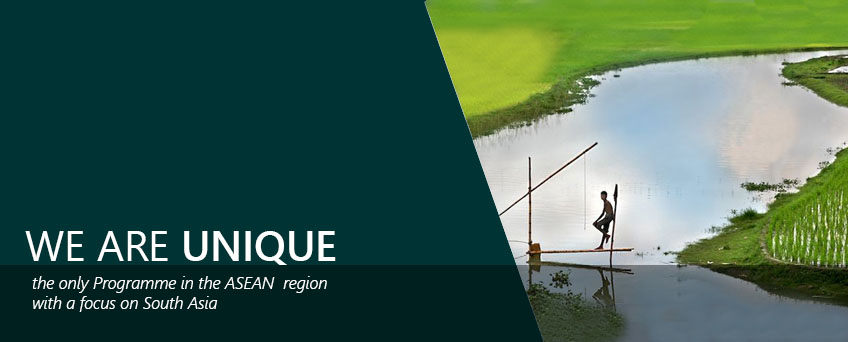Overview/History

Key Milestones
A journey of academic excellence and international collaboration
2012/2013
- SICCI Prize for South Asian Studies was established
2011/2012
- New module, SN3880A Art of India was taught via video conference by Professor Rick Asher, University of Minnesota, USA
2010/2011
- Memorandum of Understanding (MOU) for ICCR Chair for India Studies was signed with Indian Council for Cultural Relations (ICCR) for 3 years
- Inaugural ICCR public lecture by Professor Makarand R Paranjape was held
2009/2010
- First Honours student graduated
- Collaboration with Ministry of Education on Introduction of India Studies at 'A' level in Junior Colleges
- Rajabali Jumabhoy Foundation Prize in South Asian Studies was established
2008/2009
- Hindi Language modules were offered by Centre for Language Studies
- Students could use them to satisfy the SN major and minor requirements
2007/2008
- Minor in India Studies was introduced
- The French edition of the EID was published
2006/2007
- Honours in South Asian Studies was approved
- The Encyclopedia of the Indian Diaspora (EID) was completed and launched by then President S R Nathan
2005/2006
- A field studies module, SN3277 Field Studies in South Asia was taught
- The first batch of PhD students graduated
2003/2004
- The South Asian Diaspora Research Unit (SADRU) was formed and work on the Encyclopedia of the Indian Diaspora began
- Its flagship module, SN3261 The South Asian Diaspora was launched
- New modules were added: 1 General Education (GE) and 1 Singapore Studies (SS) module
2002/2003
- The first batch of SASP majors and M.A. students graduated
- Undergraduate enrolment steadily increased to 408
- The hiring of 2 post-doctoral fellows further strengthened the teaching team
2001/2002
- The first batch of PhD students enrolled
- The exposure module, SN1101E South Asia: People, Culture, Development was introduced
- The number of academic staff increased to 7
2000/2001
- The graduate programme in research was established
- The curriculum was expanded to include graduate modules
- Academic staff strength increased to 5
1999/2000
- Started as a 3-year BA programme with 4 academics and 2 administrative staff
- Offered 9 undergraduate modules and attracted 206 students
- The Basic Tamil language module was especially popular as it catered to non-Tamil speakers

